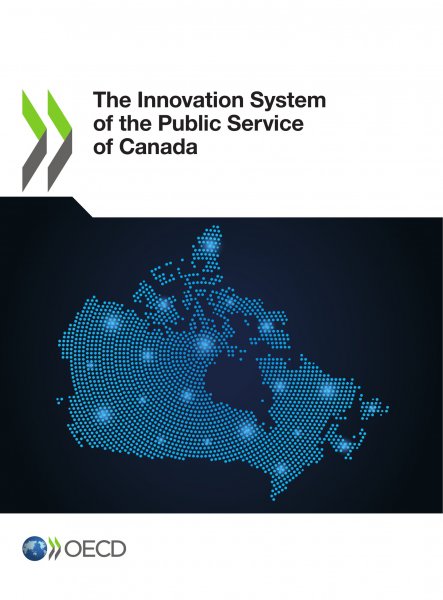New Report – The Innovation System of the Public Service of Canada

Today, the OECD Observatory of Public Sector Innovation (OPSI) is pleased to announce the release of The Innovation System of the Public Service of Canada, the first of the OECD’s reviews of a national public sector innovation system.
The report was launched at a panel discussion at OPSI’s conference “Innovation in Government: Steps, Leaps and Bounds” with speakers including:
- Marco Daglio, Head of the Observatory of Public Sector Innovation, OECD
- Rodney Ghali, Assistant Secretary of the Privy Council Office, Canada
- Göran Marklund, Deputy Director General, Vinnova, Sweden
- Liz McKeown, Director, Public Policy Analysis, Office for National Statistics, United Kingdom
- Robert Watt, Secretary General, Department of Public Expenditure and Reform, Ireland.
The report, undertaken in partnership with the Impact and Innovation Unit in the Privy Council Office and with Global Affairs Canada, provides an in-depth examination of the innovation system of the Public Service of Canada. The report investigates why a more systemic approach to public sector innovation is required and, building on insights from the Canadian context, outlines a new framework to assist Canada and other countries in thinking about the purpose, nature and effectiveness of their own innovation systems.
Key points
Some of the key findings and observations from the report include:
- The Government of Canada starts with a strong base, having a long demonstrated history of innovation. The civil service also has a longstanding awareness and appreciation of the need for innovation.
- There has been an ongoing recognition that the Public Service of Canada needs to continue to adapt and be responsive. Respective Clerks (the Heads of the Public Service) have repeatedly identified the need to go further.
- Much of the ‘low-hanging’ fruit (i.e. activities to support public sector innovation such as awards, efforts to remove hurdles, introduction of new tools) has already been picked, but this is unlikely to lead to long term sustainability.
- The innovation system is still relatively fragmented, in that most actors are experiencing the same system in different ways. New approaches are needed.
- The Canadian Public Service has made some significant steps towards a more systemic approach to public sector innovation. However, it is likely that without continuous efforts and direction the innovation system will not be able to consistently and reliably contribute to the delivery of the best outcomes for citizens.
Given that much is still being learnt about public sector innovation, the report avoids a prescriptive approach as to what should be done. It identifies potential areas of intervention, but recognises that the context will continue to evolve, and that the specific actions taken should be matched to the ambitions and intent of the Public Service of Canada.
An innovation system is made up of many parts and contributed to by many actors. The effectiveness of the innovation system – i.e. its ability to consistently and reliably develop and deliver innovative solutions that contribute to achieving the goals and priorities of the government – will depend on collective effort, involving action from different actors at the individual, organisational, and system levels.
While a range of options are put forward, the aim of this review, and the guidance included within it, is to help provide a reflection of the system so that all actors can see themselves within it. This can provide a contribution to the ongoing discussion and deliberation about what the collective aim for innovation is within the Public Service of Canada, and how everyone can play a part, and be supported in that.
Further Information
Further information can be found on the project page, including a high-level companion piece.
A webinar was held on Wednesday 5 December 2018 to overview the key findings of the report. Watch and listen to the webinar here.
Interested in public sector innovation? Sign up to the OPSI newsletter OPSI, or get in touch with us at [email protected] or @OPSIgov.











